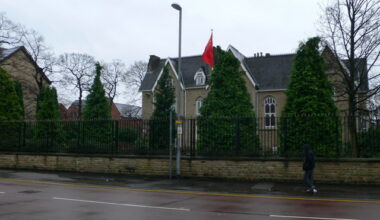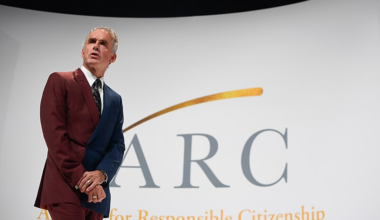Calls for a national public inquiry into grooming gangs have grown ever louder in recent days and weeks, amplified by Elon Musk’s interventions. Last week the government announced a small number of local inquiries, but not a national one. Is a national public inquiry necessary, and what could it achieve?
The demand for a public inquiry covering all the grooming gang scandals across Britain is hardly surprising, and it is certainly not limited to the ‘far right’. As Liam Halligan rightly said on the BBC’s Question Time, ‘grooming gangs’ is a euphemism; ‘child rape’ is more accurate. I’ve worked as a lawyer for victims and survivors of abuse for 25 years. All sexual abuse is appalling and harmful. But the sexual depravity, violence, and cruelty involved in these cases in areas like Rochdale puts them in the most extreme category. Crimes of this kind have taken place in at least 50 English towns and cities over the past two decades. In all likelihood, they are still happening. Officialdom turned a blind eye. Some perpetrators have been convicted, but many are now out of jail, having served what most people would regard as outrageously short sentences. Very few, if any, public officials have been held to account. The scale and seriousness of this scandal easily surpass any threshold test for a public inquiry, yet the Government has resisted launching one.
The Government argues that the issue was considered by a previous public inquiry, the Independent Inquiry into Child Sexual Abuse (IICSA). This is partly true and partly not. I was involved in IICSA from 2015-2022, representing the largest group of victims and survivors. Some parts of IICSA were better than others. The Catholic Church and the Church of England were exposed to an unprecedented degree of scrutiny.
The IICSA module on child sexual exploitation by organised networks, however, was inadequate and poorly designed. It did little to subject police and social services to serious questioning. IICSA selected six geographical areas to investigate but areas which experienced the worst scandals were left out. In assessing the response of police and social services, IICSA relied heavily on evidence from corporate witnesses, with very little in the way of balancing evidence from individual victims (my colleague Kim Harrison represented literally the only victim granted core participant status in this part of IICSA, via her mother). The very limited evidence from victims and their families was certainly at odds with the much rosier picture of service delivery painted by corporate bodies. IICSA heard far too little from those able to describe the reality on the ground. Its child sexual exploitation module cannot, in any meaningful way, be regarded as a comprehensive inquiry into the scandal.
At the same time, IICSA made critically important recommendations, including the introduction of mandatory reporting legislation which would create a legal obligation on professionals who work with children to report knowledge or suspicion of sexual abuse so that it can be investigated properly. A mandatory reporting law with proper teeth could give us what we currently lack—a legal mechanism to hold to account those who cover up or turn a blind eye to abuse. IICSA also recommended a redress scheme for victims.
What can a fresh inquiry achieve, how long would it take, and what would it cost? These are important questions, and there are trade-offs no matter what model is adopted.
Implementing these recommendations is—or should be—an urgent priority. By the time the Tory government left office very little progress had been made on IICSA’s recommendations, and to date Labour has been little better. In December, before Elon Musk’s intervention, my colleague Kim Harrison warned her MP that a failure to act on IICSA’s recommendations would leave the field open to the far right. And so it proved. Whether due to Musk or not, Labour have now committed to acting on IICSA, although detail remains sorely lacking as to how and when.
What can a fresh inquiry achieve, how long would it take, and what would it cost? These are important questions, and there are trade-offs no matter what model is adopted. As a matter of law, public inquiries cannot determine criminal or civil liability. To put it another way, a public inquiry cannot put anyone in jail, either for abusing children or for covering it up. An inquiry can certainly name and shame. It cannot remove officials from their jobs. Cardinal Nichols, leader of the Catholic Church in England and Wales, was criticised in no fewer than three reports from IICSA; he remains in post, although his credibility has been severely damaged.
Also, naming and shaming public officials who failed almost certainly requires a statutory inquiry—i.e. one with legal powers to compel witnesses and the production of documents. Without that power, an inquiry is reliant on the voluntary cooperation of those with much to hide. But that power has a flip side: the involvement of lawyers for those who might be criticised. This makes for a longer, more legalistic process. Replicated over 50 areas, that could make for a very long process indeed, lasting many years. An alternative is to have multiple concurrent local inquiries feeding into a national one. This model has much to commend it, but I share the concern expressed by Sarah Champion MP that without independence and statutory powers, local inquiries might amount to little more than errant officials marking their own homework.
One aspect an inquiry could explore is the background of the perpetrators. On this point—as IICSA recommended—more data certainly needs to be collected. The incomplete data that we have tells us that as far as sex offenders generally are concerned, the overwhelming majority are white men. Many subsets of abusers are also overwhelmingly white men—for example, child abusers in the Church of England and those who abuse in family settings.
However, so far as ‘grooming gang’ cases are concerned there is little doubt that men of Pakistani origin are overrepresented in prosecutions. One study from 2020 examined prosecutions between 1997 and 2017. It found that ‘Muslims, particularly Pakistanis, dominate prosecutions’ for this type of crime (83% in this large sample). Other studies, albeit less rigorous, have reached similar conclusions. As a matter of fact, the overrepresentation of men of Muslim and Pakistani backgrounds in prosecutions for this subset of sex crime cannot be seriously doubted. Denying it, decrying any mention of it as racist, or trying to wave it away merely feeds the impression of there being a cover-up.
We have no difficulty talking about the cultural factors which underpin the abuse of children by Roman Catholic clergy. By the same token, we should have no issue discussing the cultural factors and attitudes at work in grooming gang-style abuse.
This doesn’t mean, of course, that members of grooming gangs come only from this background, and of course there is a danger in stereotyping offenders so that those who don’t fit a preconceived template are ignored. It also doesn’t mean that most men of this background are engaging in such behaviour. But the fact of overrepresentation begs the question of why.
My view—not a scientific view, simply my impression based on case experience—is that this overrepresentation is a function of two factors. One is that Pakistani men are overrepresented in the nighttime economy where these crimes occur. The other is the revoltingly misogynistic attitudes amongst some in this group who see young women as fair game. We have no difficulty talking about the cultural factors which underpin the abuse of children by Roman Catholic clergy. By the same token, we should have no issue discussing the cultural factors and attitudes at work in grooming gang-style abuse. The more officialdom is seen to place a taboo on discussion of the issue, the more likely it becomes that any effective response to grooming gangs becomes colonised by the far right.
But the data is incomplete, as IICSA said. One role an inquiry could play is in collating and sifting the data and ensuring more transparency. This would be a substantial task. The Government has already announced that Louise Casey will do a three-month rapid review of the data—but, as IICSA noted, addressing the issues around data is a major challenge, and it is unclear (to me at least) how Casey can accomplish this task in a few weeks.
Why is the government resisting a national inquiry? Some have suggested political embarrassment. This is certainly possible. Keir Starmer personally emerges well from his period as Director of Public Prosecutions—it was during his tenure that these cases started to be prosecuted more vigorously and in much greater numbers. That said, many local authorities have a dreadful record of responding to child sexual exploitation and many if not most of these local authorities have been Labour controlled.
The grooming gangs issue also raises a politically difficult issue for Labour, one that it would much prefer nobody ever talks about—its clientelist relationships with unelected, male ‘community leaders’. And the failure to deport some of the perpetrators raises another uncomfortable issue—whether human rights provisions and/or international treaties may, in certain circumstances, be protecting perpetrators from justice. So political embarrassment may well be a factor. I suspect cost is a factor too, for a full-scale public inquiry could cost £100-200 million.
The most urgent priority must be the implementation of IICSA’s recommendations. Doing this does not—and should not – prevent the government from initiating an inquiry (or multiple local ones) into past failures. The demands for a proper inquiry will not go away. But there are choices to be made over the best inquiry model and trade-offs relating to time, cost, and overall objectives which need to be considered carefully. Victims and survivors—the people who matter most in this—need the chance to reflect on these choices and to be allowed to provide informed input into decisions on the way forward.









2 comments
Nice article. Inquiries aside, a more practical point is: How is this type of abuse going to be stopped in Britain in the future?
How is Labour going to wean itself off misogynistic ‘community leaders’ who do not actually represent many in their communities (let alone anyone who cannot be pigeonholed in that way)?
And also – is the whole practice of human rights law compromised beyond redemption by its pathological fear of being racist against (some) ‘minorities’ – much as with its unwillingness to challenge trans ideology?
And Labour is unpopular because everybody knows it is being deeply dishonest about issues like the grooming gangs, the murders that set off the summer 2024 riots, its double standards over gender and race.
When is the party ever going to change – or is it just going to carry on being as compromised by its religious and other fundamentalists as the Tories are by their connections to the hard right?
An extremely well-written piece of writing, as necessary now as it was at the time. Hats off, Richard.
Your email address will not be published. Comments are subject to our Community Guidelines. Required fields are marked *
Donate